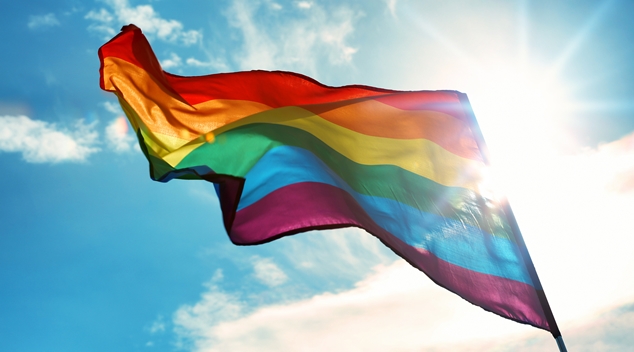
On November 27, The Australian newspaper published an article in which the newly-formed LGB (lesbian, gay & bisexual) Alliance said trans and gender diverse rights pose a threat to the rights of same-sex attracted people.
Specifically, Alliance spokesperson, Kat Karena, said “including ‘gender identity’ in the law banning conversion therapy may have the effect of legally enforcing conversion therapy for same-sex attracted individuals.”
The Australian went on to note “the rise of self-identified transgender activism is one reason for the rapid spread of LGB Alliance groups from the UK to 11 other countries including Brazil, Norway, the US and now Australia, with the message that the LGBT establishment’s new enthusiasm for ‘gender identity’ cut adrift from biological sex endangers the rights of same-sex attracted people and the welfare of children and teens who do not conform to gender stereotypes.”
In response, long-time LGBTIQ advocate, Rodney Croome, has written this open letter inviting the LGB Alliance to meet and talk;
I am a gay man who has fought for LGBTIQ equality for three decades.
I have seen cycles of prejudice against LGBTIQ people and between us.
My hope is this letter will convince the LGB Alliance to stop perpetuating these cycles, and help break them.
The LGB Alliance says trans and gender diverse people are not part of our community, that gender activism threatens vulnerable LGB people and that gender theory threatens our very identity.
I don’t see it that way. Trans and gender diverse people aren’t just our friends and family members, they are members of our rainbow community, they are allies in our struggle for freedom and equality and we in theirs.
Why? Because, like us, they don’t fit what cultural tradition and religious dogma insist a man or a woman should be.
Like us, they are made to feel shame about their “deviance” from traditional gender roles.
Like us, they struggle with a truth about themselves that can be denied or hidden but always at great cost.
Like us, they decide to reveal that truth and come out knowing others will fear and hate them, but hoping they will find affirmation and equality.
Like us, they are attacked as a threat to society by traditionalists, authoritarians, misogynists and all manner of haters who think they are an easy target.
Like us, they reach out to the broader community in an effort to foster acceptance.
Like us, they crave the safety and empowerment of a like-minded, diverse, creative and supportive community.
If you’re unconvinced we share a common struggle, just consider the remarkably similar myths and stereotypes that are thrown at all of us.
Same-sex attraction has been dismissed as a phase, a choice or “a feeling”.
LGB people have been accused of sexualising young people, and recruiting them into a miserable, sterile, unnatural life they would later regret and from which they can escape.
LGB people have been portrayed as a threat to faith, family and even feminism (because gay men were “posing” as victims of patriarchy and because the accusation of “lesbianism” was a weapon against feminists).
We have been labelled as radicals and authoritarians just for wanting to be treated equally.
Every single one of these slurs against LGB people has been revived and thrown at trans and gender diverse folk.
As LGB people we should stand against these old stereotypes, not reiterate them. If we allow them any quarter, how long will it be before they are again turned on us?
The same goes for building up our inclusive and diverse LGBTIQ community, not dividing and weakening it.
I remember when some gay men dismissed forming a coalition with lesbians because “they hate men but we love them”.
And when bisexual people were dismissed by gay men and lesbians because “they can adopt straight respectability any time they want”.
We overcame those balkanising views to form a community that is stronger for its diversity and inclusiveness.
Rejecting trans and gender diverse folk because “we have different struggles” not only excludes people who need our support and with whom we have great commonality, it weakens our community by homogenising it.
There’s also nothing new about social theory that some people fear will “erase” us.
For a century and a half LGB people have theorised an end to LGB identity.
That end could be through a utopian sexual liberation of everyone’s “polymorphous perversity”, or through the eradication of prejudice and our integration into a heterosexual world where pride is redundant.
Theories about the end of sex and gender are, at heart, no different.
We don’t have to agree with them, but it is hypocritical for us to see some as more threatening to our identity than others.
If there is one ethic the oppression of LGB people should have taught us it is to see others as we want to be seen: not as an abstract idea, not as a projection of others’ fears, but as human beings with the same aspirations and anxieties as everyone else.
When we see trans and gender diverse folk as people first what we see are fellow humans whose experience of prejudice and aspiration for acceptance is just like ours.
Trans and gender diverse people have stood by LGB people for decades, at Stonewall, at the first Mardi Gras, at Salamanca Market and at every protest and celebration since.
We must continue to stand with them, especially now when they are under greater attack than ever.
Anything less is a betrayal of our own long struggle.
I extend an invitation to you to sit down with me and a trans advocate to talk through our concerns and yours.
Rodney Croome

Love OUTinPerth Campaign
Help support the publication of OUTinPerth by contributing to our
GoFundMe campaign.




